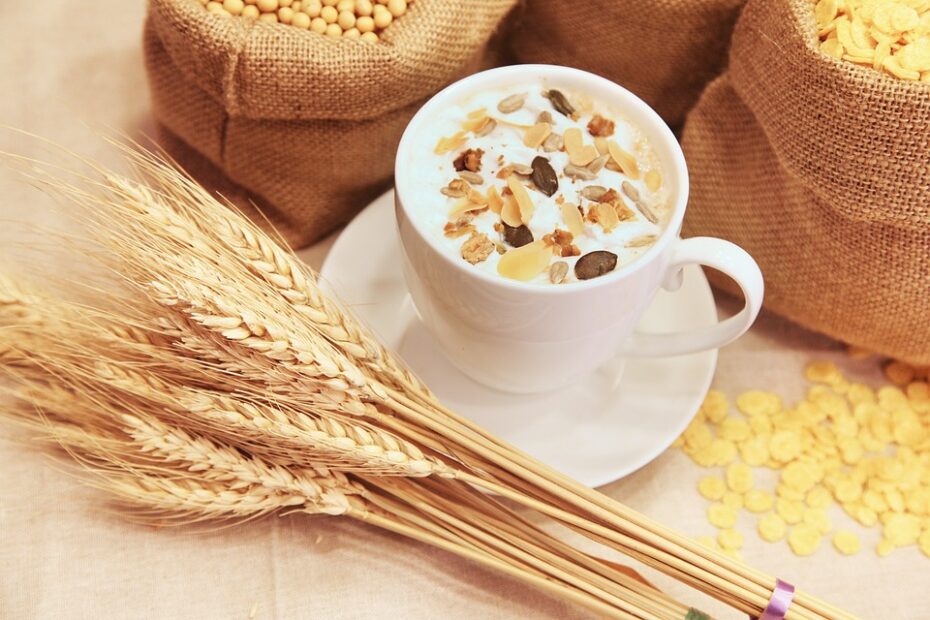the Importance of Protein Goals After gastric sleeve Surgery
Gastric sleeve surgery, also known as sleeve gastrectomy, is a weight loss procedure that involves the removal of a large portion of the stomach, leaving behind a smaller sleeve-shaped pouch. This surgery helps individuals with obesity to lose weight by reducing the capacity of their stomach and limiting the amount of food they can consume.
After undergoing gastric sleeve surgery, it is crucial to pay attention to the nutritional needs of the body. Protein, in particular, plays a vital role in the recovery process and long-term success of the surgery. In this article, we will explore the importance of protein goals after gastric sleeve surgery and provide valuable insights into how to meet these goals effectively.
1. Understanding the Role of Protein
Protein is one of the three macronutrients that our bodies require in significant amounts, alongside carbohydrates and fats. It is often referred to as the building block of life, as it plays a crucial role in the growth, repair, and maintenance of body tissues. Protein is essential for the formation of enzymes, hormones, antibodies, and even our DNA.
After gastric sleeve surgery, where a portion of the stomach is removed, the capacity to consume food is significantly reduced. This reduction in food intake makes it essential to choose nutrient-dense foods, with protein being a top priority. Adequate protein intake ensures that the body receives the necessary amino acids to repair and regenerate tissues, promote wound healing, and maintain muscle mass.
2. Setting Realistic Protein Goals
Determining the appropriate protein goals after gastric sleeve surgery can be a complex process, as individual needs may vary. However, a general guideline is to aim for a protein intake of 60 to 80 grams per day. This range ensures that the body receives sufficient protein without overburdening the digestive system.
To achieve these protein goals, it is advisable to divide protein intake over three to five small meals or snacks throughout the day. This approach helps the body to absorb and utilize protein more efficiently, preventing excess strain on the digestive system.
3. Choosing Protein-Rich Foods
Meeting protein goals after gastric sleeve surgery requires careful selection of protein-rich foods. While lean meats, such as poultry, fish, and lean cuts of beef, are excellent sources of protein, it is crucial to choose tender, moist, and well-cooked options to minimize the risk of discomfort or digestive issues.
In addition to animal-based proteins, there are plenty of plant-based protein sources that can be incorporated into the post-surgery diet. These include beans, lentils, tofu, tempeh, quinoa, and Greek yogurt. Including a variety of protein sources ensures a well-rounded intake of essential amino acids.
4. Protein Supplements
In some cases, meeting protein goals solely through food sources may be challenging, particularly during the initial stages of recovery when the appetite is reduced. This is where protein supplements can be beneficial. Protein powders or shakes specifically designed for Bariatric patients can provide a convenient and easily digestible source of protein.
When choosing protein supplements, it is essential to opt for high-quality products that are low in sugar and carbohydrates. Reading labels and consulting with a healthcare professional or a registered dietitian can help determine the Most suitable protein supplement for individual needs.
5. Monitoring Protein Intake and Adjusting as Needed
Regular monitoring of protein intake is crucial after gastric sleeve surgery to ensure that protein goals are being met. Keeping a food diary or using smartphone apps can help track daily protein consumption. It is also advisable to consult with a registered dietitian who specializes in bariatric nutrition to assess progress and make any necessary adjustments to the protein intake.
Additionally, it is important to remember that protein needs may evolve over time. As the body recovers and adjusts to the surgery, protein goals may need to be modified. Regular follow-up appointments with healthcare professionals are essential to monitor progress and make any necessary changes to the post-surgery diet plan.
In conclusion, meeting protein goals after gastric sleeve surgery is crucial for optimal recovery and long-term success. Protein plays a vital role in tissue repair, wound healing, and maintaining muscle mass. Setting realistic protein goals, choosing protein-rich foods, considering protein supplements, and monitoring protein intake are all essential steps to ensure nutritional needs are met after gastric sleeve surgery. By prioritizing protein intake and seeking guidance from healthcare professionals, individuals can support their healing process and achieve their weight loss goals effectively.
Most Asked Queries Regarding Protein Goals After Gastric Sleeve
1. What are the protein goals after gastric sleeve surgery?
After undergoing gastric sleeve surgery, it is important to meet certain protein goals to support the healing process and maintain overall health. The specific protein goals may vary depending on individual factors such as weight, age, and activity level. However, in general, protein goals after gastric sleeve surgery typically range from 60 to 80 grams per day.
Important information:
1. Protein goals after gastric sleeve surgery are essential for proper healing and maintaining overall health.
2. The specific protein goals may vary based on individual factors.
3. The recommended range for protein intake after surgery is typically 60 to 80 grams per day.
2. Why is meeting protein goals important after gastric sleeve surgery?
Meeting protein goals after gastric sleeve surgery is crucial for several reasons. Firstly, protein is essential for wound healing and tissue repair, which is especially important after undergoing a surgical procedure. Additionally, protein plays a key role in maintaining muscle mass, as losing weight rapidly can result in muscle loss. Lastly, protein is also known to help regulate appetite and promote a feeling of fullness, which can aid in weight management after surgery.
Important information:
1. Protein is essential for wound healing and tissue repair after gastric sleeve surgery.
2. Protein helps maintain muscle mass during rapid weight loss.
3. Protein can help regulate appetite and promote a feeling of fullness, aiding in weight management.
3. What are good sources of protein after gastric sleeve surgery?
To meet protein goals after gastric sleeve surgery, it is important to consume high-quality protein from various sources. Some good sources of protein include lean meats such as chicken, turkey, and fish. Dairy products like Greek yogurt and cottage cheese are also excellent sources. Additionally, eggs, tofu, legumes, and protein supplements can be included in the diet to ensure adequate protein intake.
Important information:
1. Lean meats like chicken, turkey, and fish are good sources of protein after gastric sleeve surgery.
2. Dairy products such as Greek yogurt and cottage cheese are also excellent protein sources.
3. Eggs, tofu, legumes, and protein supplements can be included in the diet to meet protein goals.
4. How can protein intake be increased after gastric sleeve surgery?
Increasing protein intake after gastric sleeve surgery can be achieved through various strategies. Firstly, it is advisable to divide protein intake throughout the day by having multiple small meals or snacks. This helps in better absorption and utilization of protein. Additionally, incorporating protein-rich foods into each meal, such as adding chicken breast to salads or including Greek yogurt in smoothies, can boost protein intake. Lastly, if necessary, protein supplements can be used to supplement dietary protein.
Important information:
1. Dividing protein intake throughout the day in small meals or snacks aids in better absorption and utilization.
2. Incorporating protein-rich foods into each meal can increase protein intake.
3. Protein supplements can be used if necessary to meet protein goals.
5. What are the potential risks of not meeting protein goals after gastric sleeve surgery?
Failing to meet protein goals after gastric sleeve surgery can have negative consequences on both short-term recovery and long-term health. Inadequate protein intake can hinder proper wound healing, leading to delayed recovery and potential complications. Furthermore, insufficient protein can result in muscle loss, weakness, and fatigue. It can also compromise the immune system and increase the risk of infections. Therefore, it is crucial to prioritize meeting protein goals after gastric sleeve surgery.
Important information:
1. Inadequate protein intake can hinder proper wound healing after gastric sleeve surgery.
2. Insufficient protein can lead to muscle loss, weakness, and fatigue.
3. Failing to meet protein goals can compromise the immune system and increase the risk of infections.
Common Assumptions Concerning Protein Goals After Gastric Sleeve
Misconception 1: Protein goals are the same for everyone after gastric sleeve surgery
One common misconception about protein goals after gastric sleeve surgery is that they are the same for every individual. In reality, protein goals can vary depending on several factors, including a person’s age, gender, weight, and activity level. Each person’s protein needs may be different based on these factors, and it is important to consult with a healthcare professional or registered dietitian to determine the appropriate protein goals for an individual after gastric sleeve surgery.
Misconception 2: Consuming excessive protein is beneficial after gastric sleeve surgery
Another misconception is that consuming excessive amounts of protein after gastric sleeve surgery is beneficial. While protein is an essential nutrient for healing and recovery after surgery, consuming excessive amounts can put unnecessary strain on the kidneys and liver. It is important to strike a balance and consume the recommended amount of protein for optimal healing and overall health.
Misconception 3: Protein goals can be easily met through diet alone
Some individuals may believe that they can easily meet their protein goals through diet alone after gastric sleeve surgery. However, due to the reduced stomach size and potential changes in appetite and digestion, it may be challenging to consume enough protein solely through food sources. In such cases, protein supplementation with protein shakes or bars may be necessary to meet the recommended goals.
Misconception 4: Protein goals are only important immediately after surgery
A common misconception is that protein goals are only important immediately after gastric sleeve surgery and can be disregarded as time goes on. However, protein remains crucial for long-term success and maintenance of weight loss after surgery. Adequate protein intake helps preserve muscle mass, promotes satiety, and supports overall health. It is important to continue meeting protein goals even after the initial recovery period.
Misconception 5: Protein goals can be achieved without proper planning and guidance
Lastly, some individuals may believe that they can achieve their protein goals without proper planning and guidance. However, without expert advice from a healthcare professional or registered dietitian, it can be challenging to ensure that protein intake is adequate and meets individual needs. Working with a healthcare professional or registered dietitian can help develop a personalized nutrition plan to ensure that protein goals are met effectively and safely after gastric sleeve surgery.
Protein Goals After Gastric Sleeve
#undergoing #gastric #sleeve #surgery #protein #goals #change #Protein #essential #nutrient #tissue #repair #muscle #growth #health #gastric #sleeve #surgery #size #stomach #reduced #means #consume #food #challenging #meet #daily #protein #requirements

